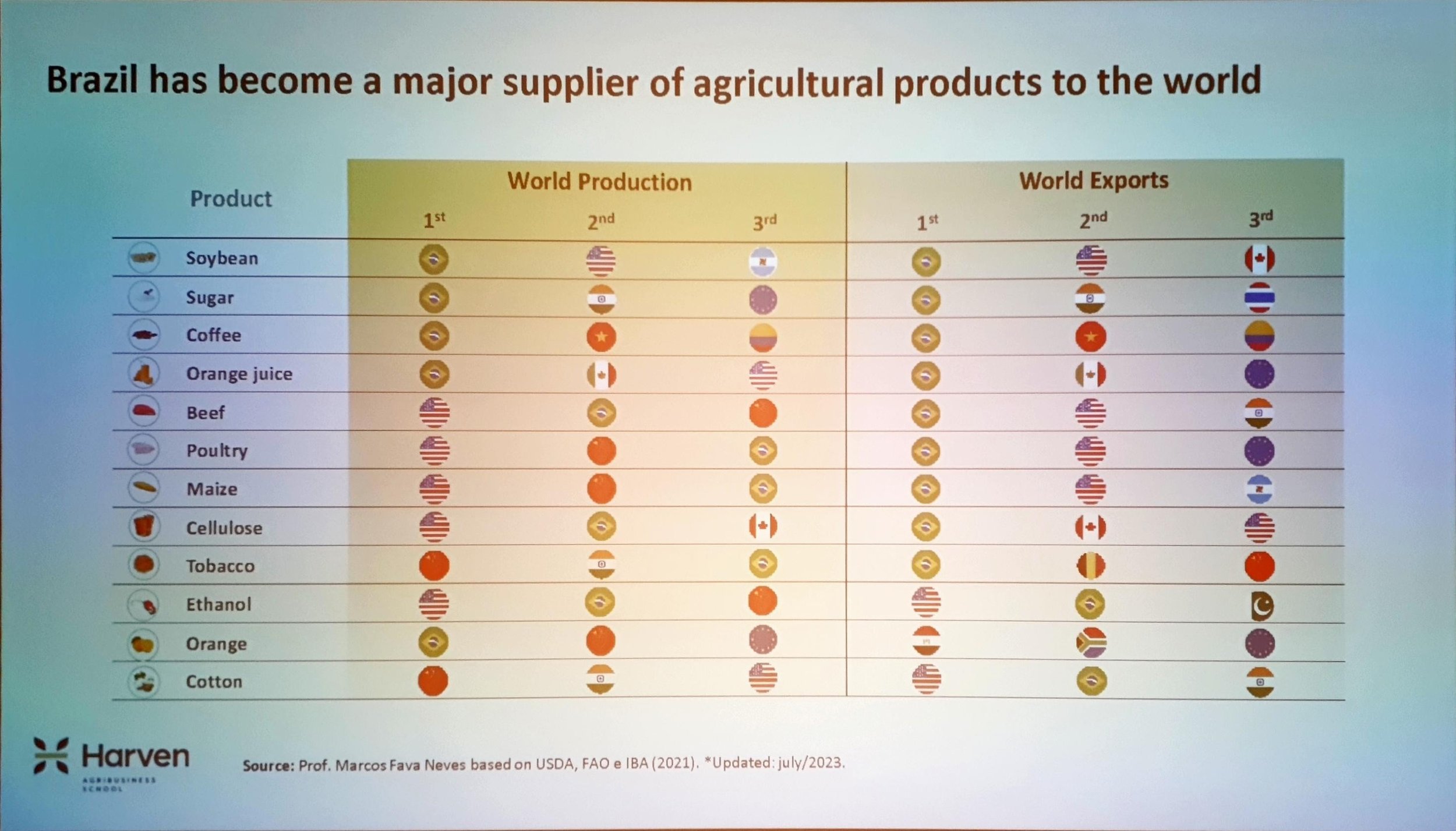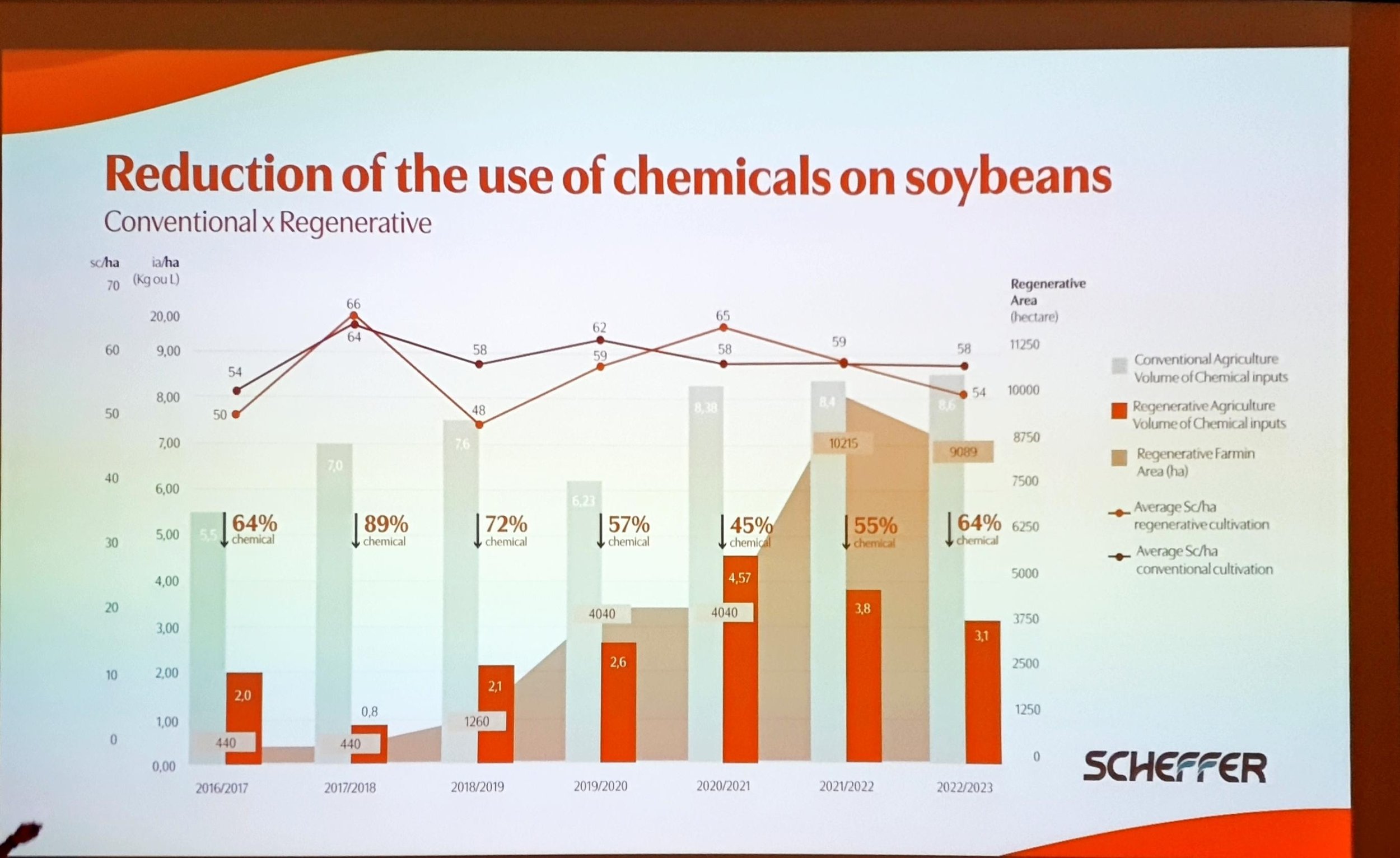Brazil series: Agri-Business Feasibility in Brazil
I've now spent 2 very intense weeks in Brazil learning about their agriculture industry. I have been exposed to state governors, super-scale farmers, supply chain beasts and smaller land operators. I am writing a series of posts to summarise my learnings. In the last post, I wrote about the soyabean commodity and the impact from Brazil. Here's post number 3.
Myth: Brazil is too corrupt for business start-up enterprises to prosper.
The truth: Brazil is an agricultural behemoth and can boast to be the 3rd largest food producer and the largest net exporter in the world. Agriculture is 25-30% of Brazilian GDP and this alone would rank in the top 30 countries in the world.
Here are some annual production world rankings:
Soy: 1st in world production / 1st in world exports
Sugarcane: 1st / 1st
Coffee: 1st / 1st
Orange juice: 1st / 1st (8 out of 10 imported glasses of orange juice worldwide are Brazilian)
Beef: 2nd / 1st
Corn: 3rd / 1st
Poultry: 3rd / 1st
How did Brazil get here?
In 1850 the slave trade was abolished in Brazil and Europeans went to work, especially Germans and Italians. These families eventually owned some of Brazil's largest soy farming businesses. Guillarme Scheffer spoke at the @Nuffield Brasil event I attended and explained that he started in the 1980's and now farms 220k hectares and is on a journey to transforming his land towards regenerative agriculture. I visited SLC in Porto Alegré, a family farming business who started in 1945, they farm 700k hectares, trade commodities and machinery and are listed on the Brazilian stock exchange. Lastly, we spoke with the State Governor of Mato Grosso do Sul, Eduardo Riedel. As a farmer himself, I was impressed by his knowledge and understanding of agriculture. He answered some fairly challenged questions from the Nuffield Scholars professionally. UK politicians take note!
Then we have the smaller producers. How can they compete with these huge corporate family farms? I was fortunate to visit an indigenous community who were happy with their lives and could produce their own food self-sustainably, despite no government support and only a little help from the World Bank and US. I also visited a farming cooperative, Sidrolandia, who processed and marketed fruit for its many small holder producer families. They showcased true care for their producers and took away the responsibility and pressure to sell their products, which was made important during the past year when the El Nino phenomenon drastically impacted yields.
All this is great for business right? Well to the Western observer, there's the obvious downside with the negative perceptions of Brazilian agriculture. The EU has brought in a directive that all imported soy has to be certified deforestation free. There remains political instability from the region with Argentinian inflation at record highs and military unrest in Ecuador. If Brazil is to continue to flourish, it needs to stay out of this. It also needs to reduce the corruption if it wants to attract more foreign investment and demand the respect it's capability perhaps deserves. The interest rates are very high running at c. 12%, meaning some loans will demand up to 17% interest. The government has special reduced rates for agri-business, but your business would have to turn some serious profits to pay off the interest.
From the perspective of a business owner myself, I certainly saw many reasons to start up in Brazil, with the productivity growth and focus on agriculture being the main reasons. The climate and way of life also helps! Whilst I can't hide away from the thought that we would only be shown one facet of the good, the bad and the ugly of Brazil I saw plenty of examples of businesses prospering and it made me think on multiple occasions what life would be like living here or other growing nations of the world.
So, is it impossible for foreign business to prosper in Brazil? No, not at all. In fact, Brazil is thriving.






